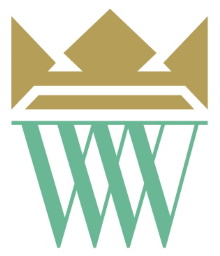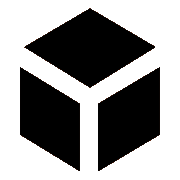Three-dimensional documentation of selected exhibits from the museum collection
The “Three-dimensional documentation of selected exhibits from the museum collection” task, which has been carried out for over two years by a team from the Faculty of Mechatronics at the Warsaw University of Technology, will soon be completed (November 2019). It is therefore time to summarise the activities that were carried out both in the interiors of the Palace,[1] on its elevation[2] and in the measuring[3] laboratory located outside the Palace. Despite the innovative nature of the activities, characterised by high accuracy in measuring very large areas (in the case of both palace rooms, the surface for which three-dimensional measurements were made with a resolution of 100 points per mm2 was a total of more than 180 m2), an extremely high degree of reproduction of the surface ceramic sculptures (more than 2,500 points per mm2 of the surface) or the use of an experimental system of markers on the façade of the Palace (allowing for the comparison of measurements of the same façade locations made at intervals of several months), all the design assumptions were achieved in accordance with the guidelines developed more than three years earlier. This was not without problems – the work carried out on the façade was seriously threatened by acts of vandalism associated with the thoughtless destruction of metal markers mounted on the façade, to which a separate article (LINK) was devoted. It was also a major challenge to carry out the measurement work in the interiors of the Palace with a margin of error of a few hundredths of a millimetre in the face of the micro-vibrations of the building structure generated by the intensive construction and renovation work ongoing in parallel during the entire project. The implementation of a project consisting of so many different tasks required constant cooperation and coordination between the curators of each task.
Scanning two palace interiors as part of a project that has been consistently implemented for more than ten years as part of various undertakings has increased the number of rooms for which the museum has three-dimensional documentation with quality of reproduction unprecedented on a global scale. We are talking here about interiors with very interesting and rich decoration, which for conservation reasons will never be fully accessible to the public. The collected data allows not only for testing the latest technological solutions, increasing the possibility of presenting these wonderful monuments (such as virtual reality), but also provides invaluable comparative material describing the state of preservation of these structures at the beginning of the 21st century.
All high-resolution three-dimensional models of the twelve documented bisque porcelain sculptures have been specially redesigned (simplified) and prepared for publication on Sketchfab, where anyone interested can access them anytime and free of charge from anywhere in the world.
The measurements developed for the sequential measurements of key fragments of the palace façade have already been presented at international conferences (such as SPIE Optical Metrology in Munich) and met with great interest from experts. For the Wilanów team, however, they confirmed the validity of the research assumptions and created a solid basis for the implementation of similar projects in the future.
[1] Scanning of wall and ceiling surfaces of two rooms: The Queen’s Antechamber and the Al Fresco Cabinet
[2] Measurements of twelve selected fields measuring 15 cm by 15 cm repeated eight times for each field
[3] Scanning of twelve bisque porcelain sculptures from the Wilanów collection: The Vestal Virgin (Wil.491), Paris (Wil.492), Girl with a Sheep from the Children – Sacrificers series (Wil.494), The Singer from the Court Musicians series (Wil.665), Shepherdess (Wil. 667), Shepherd (Wil.668), Venus and Adonis (Wil.671), The Gellert Monument (Wil.678), Hermes (Wil.679), Apollo Citharoedus (Wil.681), Diana with a Dog (Wil.701) and Aphrodite (Wil.712).

suggested

Three-dimensional models of sculptures on your computer. Take a look!
It is very difficult to make the results of three-dimensional documentary work widely available to the public due to technical …

How to show the inaccessible – three-dimensional scanning of the Queen’s Antecabinet
The interiors of the Wilanów Palace are characterised by an unprecedented richness and diversity of the elements present in them. …














